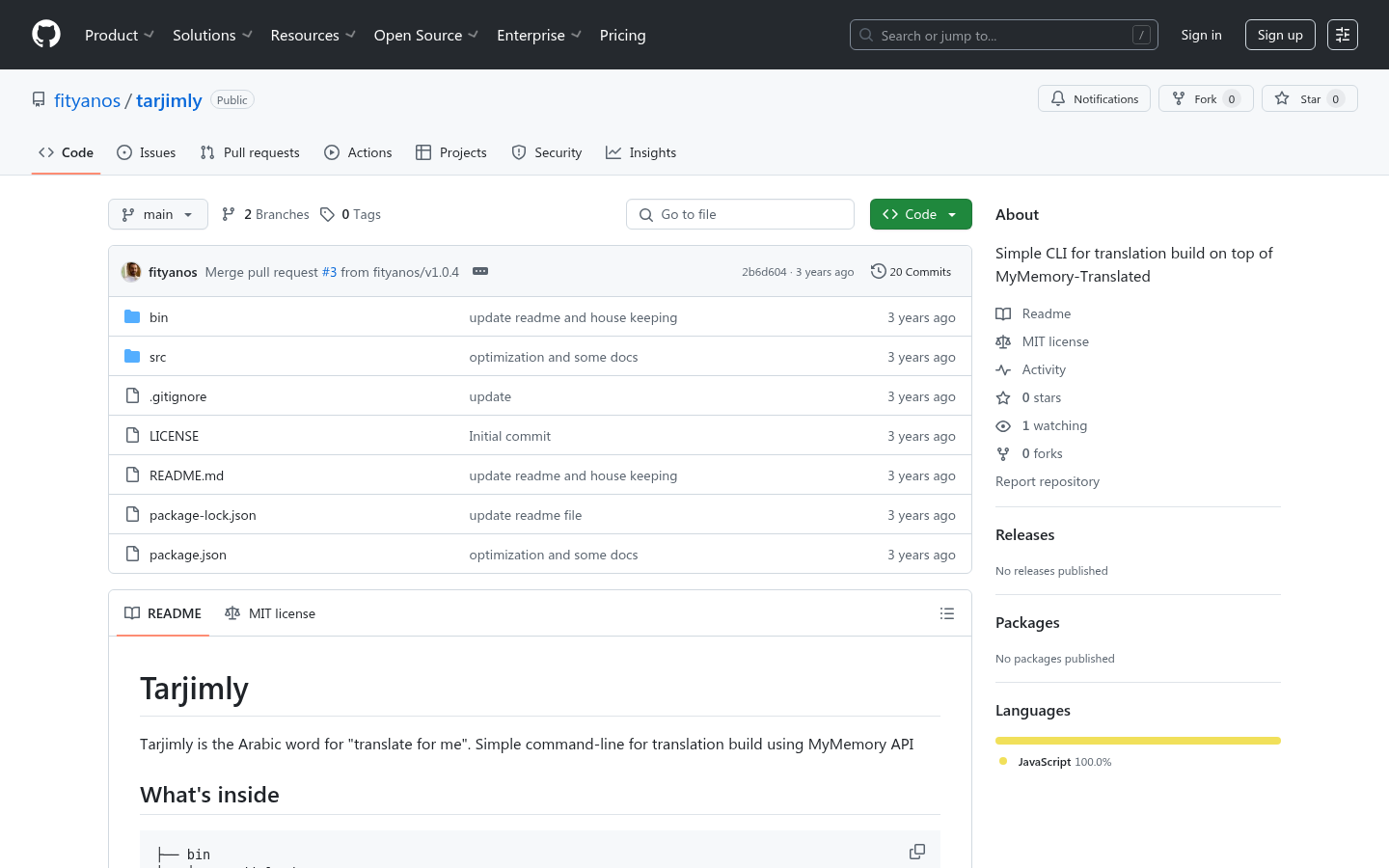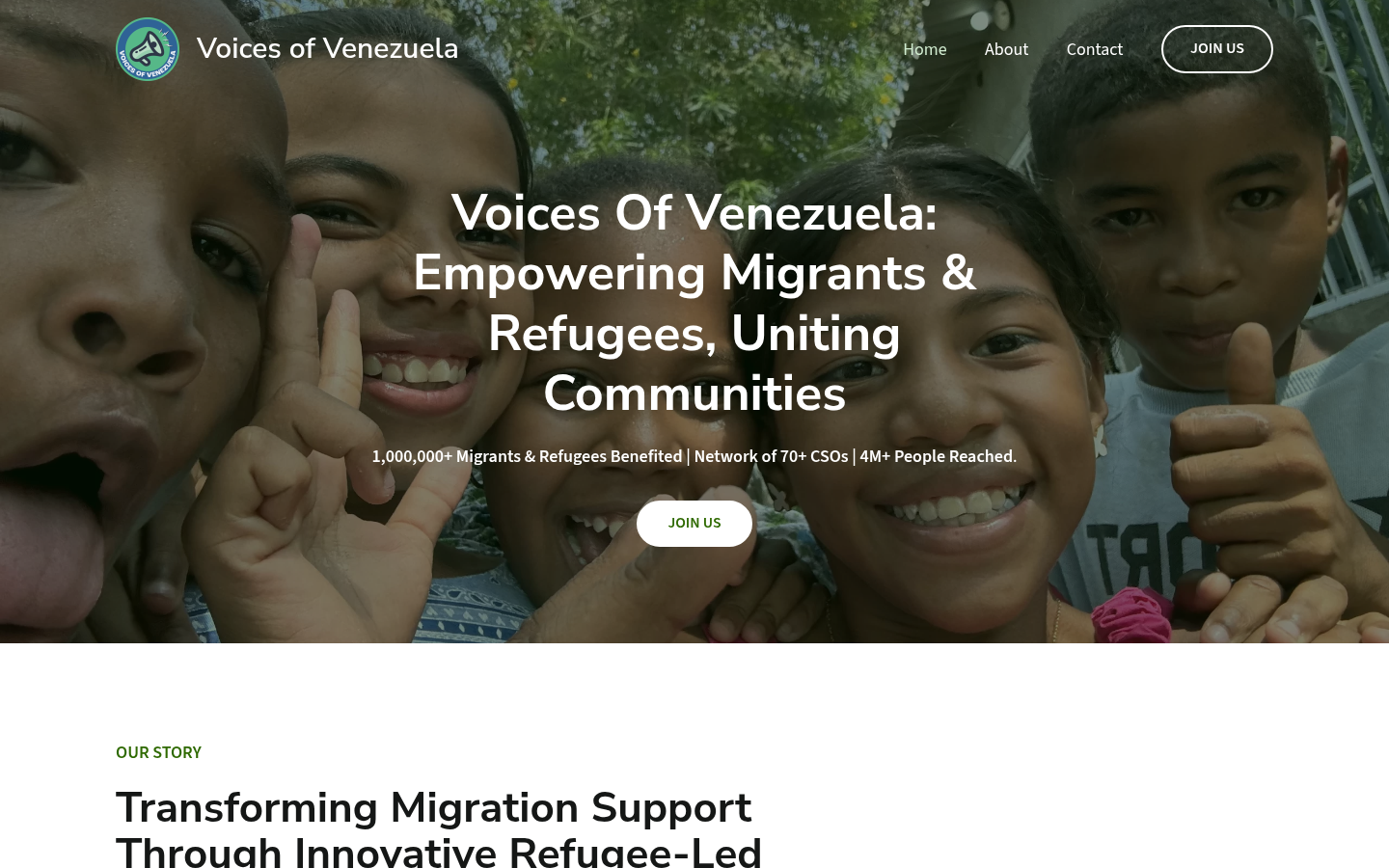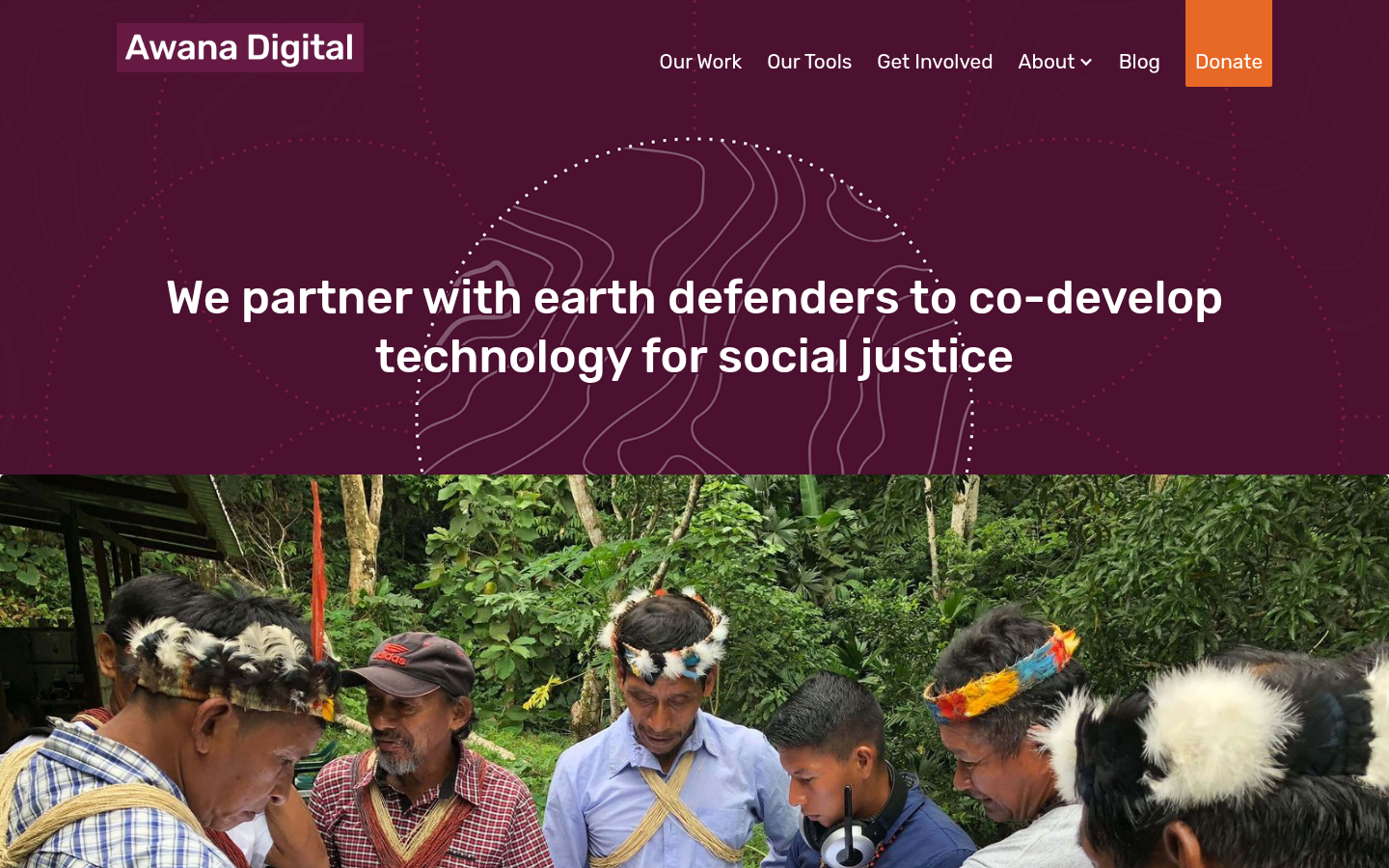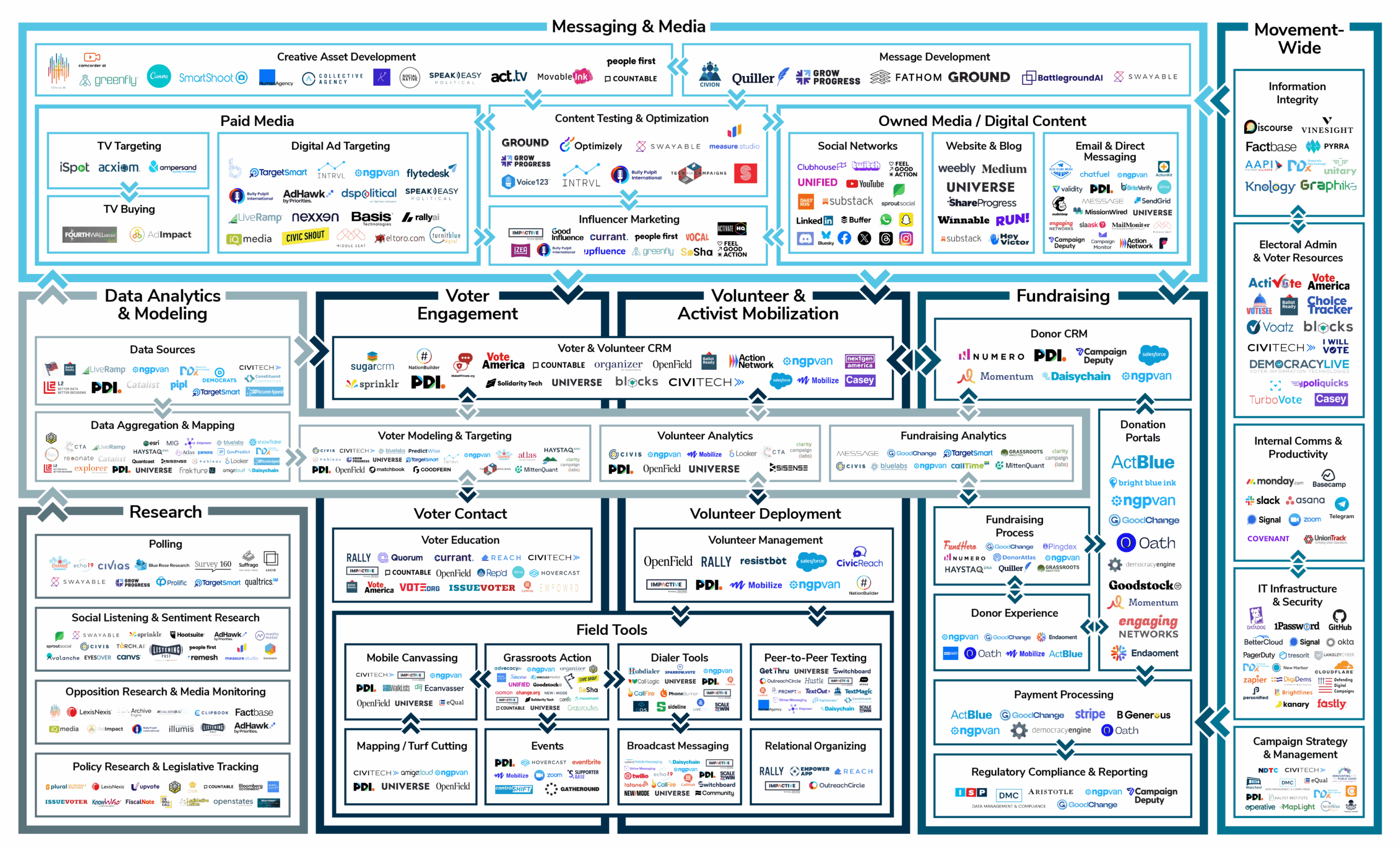Civic Tech Field Guide
Sharing knowledge and productively growing the fieldSearch 12186 projects
Showing 12186 Results

Phone Credits for Refugees (PC4R)
United Kingdom of Great Britain and Northern Ireland (the)PC4R was set up in February 2016 by James Pearce as a way to provide phone credits to people in refugee camps.

CultureLabs
European Union (EU)The CultureLabs platform aims to systematise and spread knowledge about participatory projects in the field of cultural heritage and beyond. Through its functionalities and the variety of content it provides, it aspires to become a single point of reference for those who wish to organize participatory projects by taking advantage of digital technologies through a human rights lens. Among others, it addresses refugees in Europe through its various initiatives.

Taxonomising Resistance Technologies
BangaloreThis taxonomy is a living repository of digital systems that fall under the definition of what we call ‘Resistance Technology’ or ‘ResTech’, a digital layer in the migration sphere that is community-led, and built to fill gaps in information, welfare, and development through bottom-up means, thereby rebalancing existing power structures and enabling negotiation for people on the move.

Refugee Info Bus
European Union (EU)Refugee Info Bus provides multilingual legal information, wifi and phone charge for displaced people.

ALMAMAR App
Germany (Deutschland)ALMAMAR is a newly developed intervention for refugees that supports them in coping with psychological problems (e.g. sadness or anxiety). ALMAMAR is based on a scientifically reviewed program that has already been used successfully in various countries. The program is either internet-based - on a smartphone or computer - with written contact or face-to-face contact. Participation is free of charge.

Techfugees
United Kingdom of Great Britain and Northern Ireland (the)Techfugees is an initiative that supports the deployment of responsible technology products and services for and with displaced persons across the world. It also enables the creation and application of tech-enabled solutions to manage migration.

Tarjimly
United States of America (the)A non-profit that seeks to eliminate humanitarian language barriers to improve the lives of refugees and immigrants. This service is built for people on the move and non-profit organisations.

Children On The Edge
United Kingdom of Great Britain and Northern Ireland (the)Children on the Edge is a child rights organisation created to support the world’s most marginalised children, living in some of the toughest situations. We currently work with more than 20,000 children in Bangladesh, India, Uganda, Myanmar, and Lebanon.

Refugee Open Ware (ROW3D)
Middle East and North AfricaROW3D is a consortium of different partners including technologists, aid workers, entrepreneurs and medics focusing on humanitarian innovation - primarily equipping refugees with skills to use digital fabrication techniques to manufacture essential supplies.

Hababy
European Union (EU)Hababy is a web app for prenatal, and postnatal care for refugee women.

Aapti Institute
BangaloreWe want an equitable and just digital world where people are empowered to negotiate with technology

Āhau
OceaniaĀhau is a Whānau Data Platform that helps whānau-based communities (whānau, hapū, Iwi) capture, preserve, and share important information and histories into secure, whānau managed databases and servers. Keep track of whānau whakapapa information, preserve and share cultural records and narratives, own and control whānau data and servers, and build a stronger sense of whānau, community and identity. (whānau is an extended family or community of related families who live together in the same area. Origin: New Zealand)

FindHello
United States of America (the)FindHello is an app built in partnership with the UNHCR by USAHello, a non-profit organization that uses technology to connect immigrant communities with the information and resources they need to thrive. It seeks to target refugees who migrate to the USA.

aeneas is a Python/C library and a set of tools to automagically synchronize audio and text (aka forced alignment)

Integreat
European Union (EU)Integreat provides newcomers with local, municipal level information in several languages.

Talent Beyond Boundaries (TBB)
United States of America (the)The organisation focuses on making skilled migration systems for refugees more accessible, and to create a world where displaced people can safely migrate for work, using their skills to rebuild their lives with dignity and purpose. It also collaborates with governments to achieve its purpose.

Berlin Mondiale
BerlinTo make arts and culture more visible and accessible to people in outskirt neighborhoods of Berlin, particularly those with migration, asylum, and exile histories.

Refugee Phrasebook
European Union (EU)The Refugee Phrasebook is a multilingual tool that provides basic useful vocabulary related to the most common immediate needs. It is an open collaborative project that assembles important phrases from various fields, building a collection of useful words and phrases for refugees who just arrived.

Voices of Venezuela
Latin AmericaVoices of Venezuela (VOV) is committed to empowering Venezuelan migrants through innovative, AI-powered solutions and community-driven initiatives.

Re:Match
European Union (EU)Developing and applying a preference-based algorithm that brings together welcoming cities and people seeking protection, Re:Match aims to bring just, sustainable and human-rights centered innovation to the field of migration governance.

Refugermany
European Union (EU)An app that aims to provide asylum seekers in Germany information on asylum procedures, transportation, employment, and so on. It is designed as a welcome guide that can be easily updated as compared to a physical pamphlet.

Duolingo
United States of America (the)The app aims to give everyone access to free language education.

Datavoros
Mexico (Estados Unidos Mexicanos)Datávoros is a research project on data collection through mobile applications developed by governments and companies. Their analysis focuses on understanding what data is collected and how, what permissions are requested, and what security and privacy measures are in place. It is built to create accountability and transparency for users.

RefAid
United Kingdom of Great Britain and Northern Ireland (the)The app seeks to ensure that migrants in Europe can access trusted services and accurate information in the palm of their hand - wherever they are.

Awana Digital
United States of America (the)Digital Democracy’s mission is to work in solidarity with frontline and indigenous communities to use technology to defend their environmental and human rights. We partner with environmental defenders to co-design and co-develop tools they can use to defend critical ecosystems and Indigenous cultures. Digital Democracy helps our partners achieve transformative change and works toward a world where all people can participate in decisions that govern their lives.

Watch The Med
European Union (EU)Watch The Med is an online mapping platform to monitor the deaths and violations of migrants’ rights at the maritime borders of the EU. The WatchTheMed project was initiated as part of the 2012 Boats4People campaign in the Central Mediterranean. Today the project further involves a wide network of organisations, activists and researchers. Through the transnational cooperation with migrants’ rights organisations, activists, researchers, migrants, seafarers active in, around and beyond the Mediterranean and the use of new mapping technologies, WatchTheMed aims to document the deaths and violations that are the structural product of the militarized Southern European border regime. The online map allows to spatialise incidents across the complex legal and political geography of the Mediterranean Sea. Through the accounts of survivors and witnesses, but also the analysis of ocean currents, winds, mobile phone data and satellite imagery, it is possible to determine in which Search and Rescue zone, jurisdictions and operational areas an incident occurred – as well as showing other boats who were in the vicinity of those in distress. Spatialising such information is essential to determine responsibility for violations at sea. Apart from reconstructing past events, the participatory nature of the platform allows many different actors to to indicate ongoing situations of distress. The documentation generated by WatchTheMed seeks to support the work of organisations that defend migrants’ rights, inform migrants of their rights and security at sea, pressure authorities into respecting their obligations at sea, support the ongoing campaigns by the relatives of the dead and disappeared at sea, and support legal proceedings against those who violated the rights of migrants.

Humans In The Loop
European Union (EU)Our goal is to provide digital work and training opportunities in some of the areas of the world which are hit hardest by armed conflict and forced displacement. We recognize the complexity of working in such fragile contexts and in order to navigate the challenges around employing and paying people in these locations, we partner with a network of established local organizations with a proven track record.

Refugee Info
European Union (EU)Refugee Info is a European information service for refugees, migrants, and asylum-seekers.

Shuvayatra
South AsiaTo help make the process of labour migration safer and more secure, Shuvayatra is a free mobile app that is placing the combined knowledge of experts, advocates, and the global Nepali diaspora in the hands of migrant workers. Source It is a joint project from The Asia Foundation, the Non-Resident Nepali Association (NRNA), and YoungInnovations.

Contratados.org
Mexico City, CDMX, MexicoContratados.org allows workers to share their experiences and write reviews about their recruiters and employers in order to make the recruitment process transparent and generate a mechanism for accountability for compliance or non-compliance with the obligations of employers and/or recruiters. This information-sharing initiative fills a critical gap in the information available to migrant workers, advocates, and governments about the practices and actors involved in international labor recruitment. Contratados.org seeks to increase the power of the migrant worker within the recruitment process and , to end abuses in recruitment and employment within temporary work programs.

pardesi.org.np
South AsiaAn information portal for Nepalese migrants to bridge the gap in their access to information.

Citizen Dialog Kit
Belgium (België / Belgique / Belgien)With wireless survey devices, we make it easy to gather the opinions of more and different people.

Sponsor Lead Service Line Replacement Efforts & Drinking Water Infrastructure
United States of America (the)Looking to support public drinking water infrastructure and health equity at scale? Help accelerate the removal of 9.2 million lead service lines nationwide and explore how your brand can be part of a trusted, nationally visible civic tech initiative. See how your organization can make a measurable public health impact through transparent sponsorship opportunities.

We Choose Us
United States of America (the)A project of the Pro-Democracy Campaign, we aim to highlight commentary, research, and examples of strong organizing, better voter engagement practices, and strategies to make democracy work for all in America.

Digital Public Infrastructure For Digital Governments
OECD, Rue André Pascal, Paris, FranceThis OECD policy paper explores digital public infrastructure (DPI), defined as shared digital systems that are secure and interoperable and that can support the inclusive delivery of and access to public and private services across society.

The DPI Approach: A Playbook
India (Bhārat)This DPI playbook is designed as a practical and public resource that low and middle-income countries (LMICs) in particular can utilize in building an inclusive and rights-based DPI.

Reporters Committee for Freedom of the Press
United States of America (the)The Reporters Committee for Freedom of the Press provides free legal support and legal resources, including training, direct legal representation, and reporting guides, to protect First Amendment freedoms and the newsgathering rights of journalists both nationally and locally in the U.S.

Doroob
West Bank (al-Ḍiffah al-Gharbīyah)Updated maps by local staff from your community to match map frequent changes equiped by location services.

2024 Political Tech Landscape Report
United States of America (the)Each year, we track developments across the political technology space, providing a window into how our ecosystem is evolving—and what it means for Democratic campaigns and progressive infrastructure. This year’s report focuses on the turbulent 2024 election cycle and the hard lessons it left in its wake.

Journalist Assistance Network
United States of America (the)Journalist Assistance Network to address growing need for legal, safety, immigration resources





